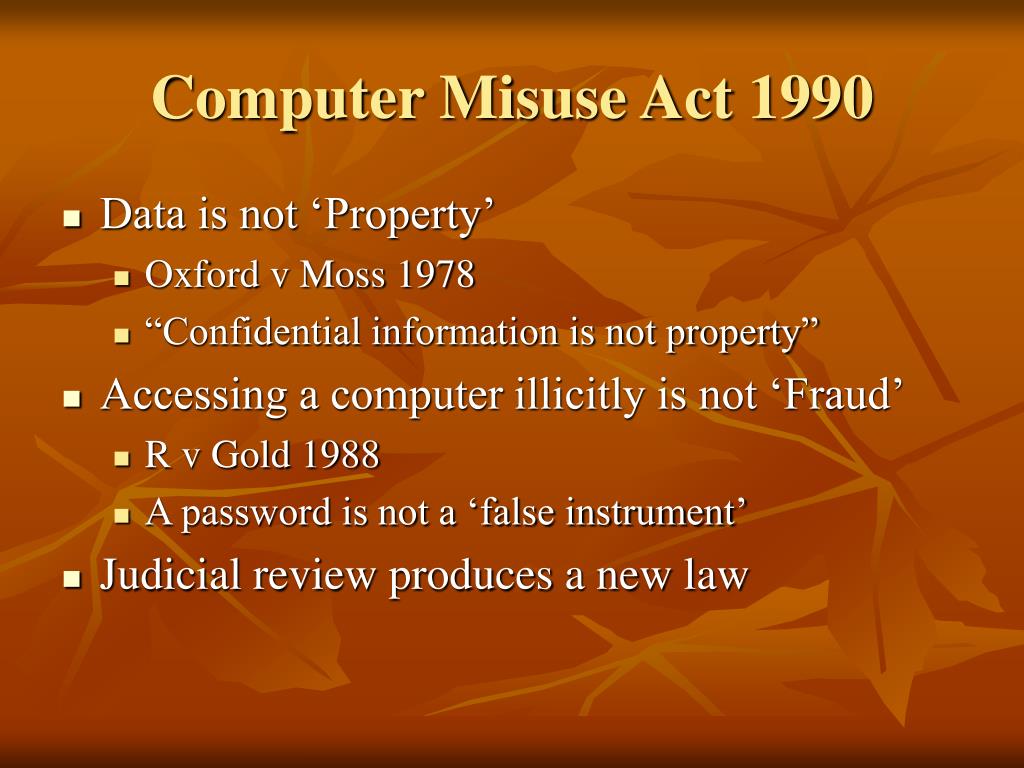Technology has revolutionized our world in so many ways, and with it comes a new set of challenges that we must contend with. One of those challenges is the issue of computer misuse, which has become a growing concern in recent years.
Computer Misuse Act 1990: Understanding the Law
At the heart of the issue is the Computer Misuse Act 1990, a piece of legislation that makes it illegal to access or modify computer systems without authorization. The law is designed to protect computer systems and the data they contain from malicious attacks and other types of misuse.

Under the law, individuals who are found guilty of computer misuse can face severe penalties, including imprisonment and hefty fines. But what exactly does the Computer Misuse Act 1990 cover, and how can you stay on the right side of the law when it comes to computer use?
What Does the Computer Misuse Act 1990 Cover?
Put simply, the Computer Misuse Act 1990 makes it illegal to do any of the following:
- Access a computer system without authorization
- Interfere with a computer system without authorization
- Modify a computer system without authorization
But what does this mean in practice? Essentially, it means that you must have permission to access, modify, or interfere with any computer system that you do not own or have official access to. This includes computers, servers, networks, and other types of technology.
If you do not have permission to access a computer system, attempting to do so could land you in hot water with the authorities. This is true even if you are only trying to gain access for harmless purposes, such as curiosity or research.
Penalties for Computer Misuse
The penalties for computer misuse can be severe, depending on the nature and severity of the offense. At their most severe, these penalties can include:
- Imprisonment for up to 10 years
- A fine
- A combination of both imprisonment and a fine
If you are found guilty of an offense under the Computer Misuse Act 1990, you could also face other types of punishment, such as community service or probation. In addition, a conviction for computer misuse can have serious consequences for your future, such as making it difficult to find work in certain fields.
How to Stay on the Right Side of the Law
So, how can you avoid running afoul of the Computer Misuse Act 1990? Here are some tips and ideas to keep in mind:
Always Get Authorization
The most important thing you can do to avoid breaking the law is to always get authorization before accessing, modifying, or interfering with any computer system. This means getting permission from the owner or administrator of the system in question, and making sure that you are clear on what you are and aren't allowed to do.

If you are unsure whether you have authorization to access a particular system, it's always better to err on the side of caution and find out before you proceed. This could mean contacting the system owner or administrator directly, or consulting with an expert in the field.
Be Careful with Passwords
Another important way to avoid breaking the law is to be careful with passwords. Passwords are the keys that give you access to computer systems, so it's crucial that you use them responsibly and keep them secure.
Make sure that any passwords you use are strong and difficult to guess, and avoid sharing them with anyone else. In addition, make sure that you change your passwords periodically, especially if you suspect that someone else may have gained access to them.
Protect Your Own Computer Systems
Finally, it's important to protect your own computer systems from unauthorized access and other types of malicious activity. This means using antivirus software and keeping your operating system and other software up to date with the latest security patches.

It also means being careful with email attachments and links that you receive from unknown sources, as these can sometimes contain malware that can harm your computer system or give criminals access to your sensitive data.
Conclusion
The Computer Misuse Act 1990 is an important piece of legislation designed to protect computer systems and the data they contain from malicious activity. By understanding the law and taking steps to protect your own computer systems, you can avoid breaking the law and keep yourself safe online.

Remember, if you are unsure about whether you have authorization to access a particular computer system, it's always better to ask before you proceed. By taking a cautious and responsible approach to computer use, you can help to protect yourself and others from the harmful effects of computer misuse.

At the end of the day, it's up to all of us to do our part to keep the internet a safe and secure place for everyone. By following the tips and ideas outlined in this post, you can help to make a positive difference in the fight against computer misuse.

Together, we can create a world where technology is used for good, not harm.